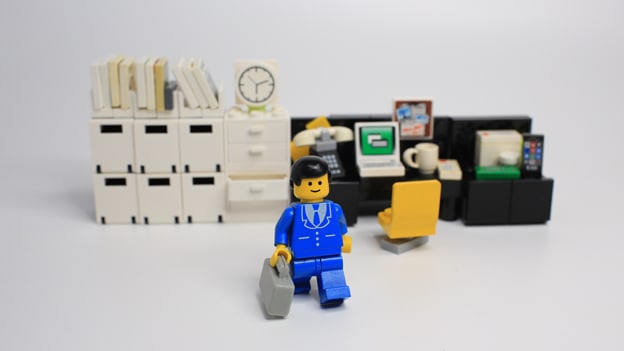Here’s how you should spend your last 30 minutes in office

In the first part of the series, we have already seen than seemingly small adjustments to our schedule at the beginning of a day can make a lot of difference. But what about the end of the day, when you are at your wits end, and keep checking the clock to rush out the moment it strikes five? Spending the last few minutes of your work productively, is the other part of the puzzle that you need, to be at your best. A day that ends well will not only bring you a sense of closure, but also help you see what all you have accomplished and fulfilled.
Here’s what you should do in your last thirty minutes at work:
First 5 minutes
Remember the task-list you made in the morning? Now would be a good time to revisit it. Glance through it, and decipher the big chunks that are over, and the ones that will spill over to tomorrow. While you are at it, check your calendar for the next day’s schedule and to check if an important meeting or deadline is scheduled that slipped your mind. Take a mental note of things you need to do before you need to exit (check in with a colleague) and after you leave (say pick up the dry cleaning or dinner).
Next 10 minutes
Now would be a good time to reply to all the emails that did not need your primary attention at the beginning of the day, these might include unnecessary CCs, invitations to events, random newsletters and whatnot. Do this regularly to avoid your inbox ballooning to thousands of unread emails, and also to be prompt and consistent in communication from your end – no matter the importance of the content. Additionally, go through unchecked work notifications, or work calls you might have missed during the day.
Next 5 minutes
As you begin to collect your things, reflect on the day that has gone by, qualitatively and quantitatively. From then on, put to bed, thoughts about work, presentations and reports. Consciously begin to dissociate and disconnect, to allow yourself to really leave the office when you exit. Turn of email and IM notifications, and clean up your desk. Very importantly, don’t forget to turn off the lights or any other electronic device at your desk, as you leave – do your bit!
Last 10 minutes
Repeat what you did in the morning; catch up. The last ten minutes must be spent with minimal to no-work talk, ideally in a fun and relaxed atmosphere, to set the tone for time back home. Make it a point to bid goodbye to your colleagues, even if they have momentarily stepped out, or even if you don’t share the best of rapport with them. Check in with friends and colleagues in other departments to see if you can share rides, or go back home together. Essentially, as long as you reserve this time to let your mind know that work is over, you’re good to go.
Just like you reach office at a certain time, make it a habit to leave your office at a certain fixed time. If you think you can be super-productive after a regular nine-hour shift by stretching some overtime, you couldn’t be more mistaken. Staying back once in a blue moon to work against a deadline is acceptable, but don’t make erratic work timings the norm.
There must be some truth to the common saying that ‘All’s well that ends well’, for once you start using the last few minutes of your working time judiciously and consciously focussing on winding up – physically and mentally – you will realise the magnitude of difference it can make. Attaining closure is an intrinsic part of being who we are; and checking things off of a list can actually help you assess your performance for the day.
Spending a few minutes at the beginning and end of your working day to channelize your focus, might seem too trivial of a task to be undertaken, or deliver any tangible results, but it can do wonders to your performance, productivity and focus for the rest of the day. Additionally, although the tips suggested in the series, are practical and doable, but can alter them suiting your schedule, nature of work, and interests, as long as the broader objectives are met. At the end of the day (and the beginning), what counts is your wellbeing and performance, and if a sparing a few minutes can help you be a better version of yourself – it’s worth a shot, isn’t it?













